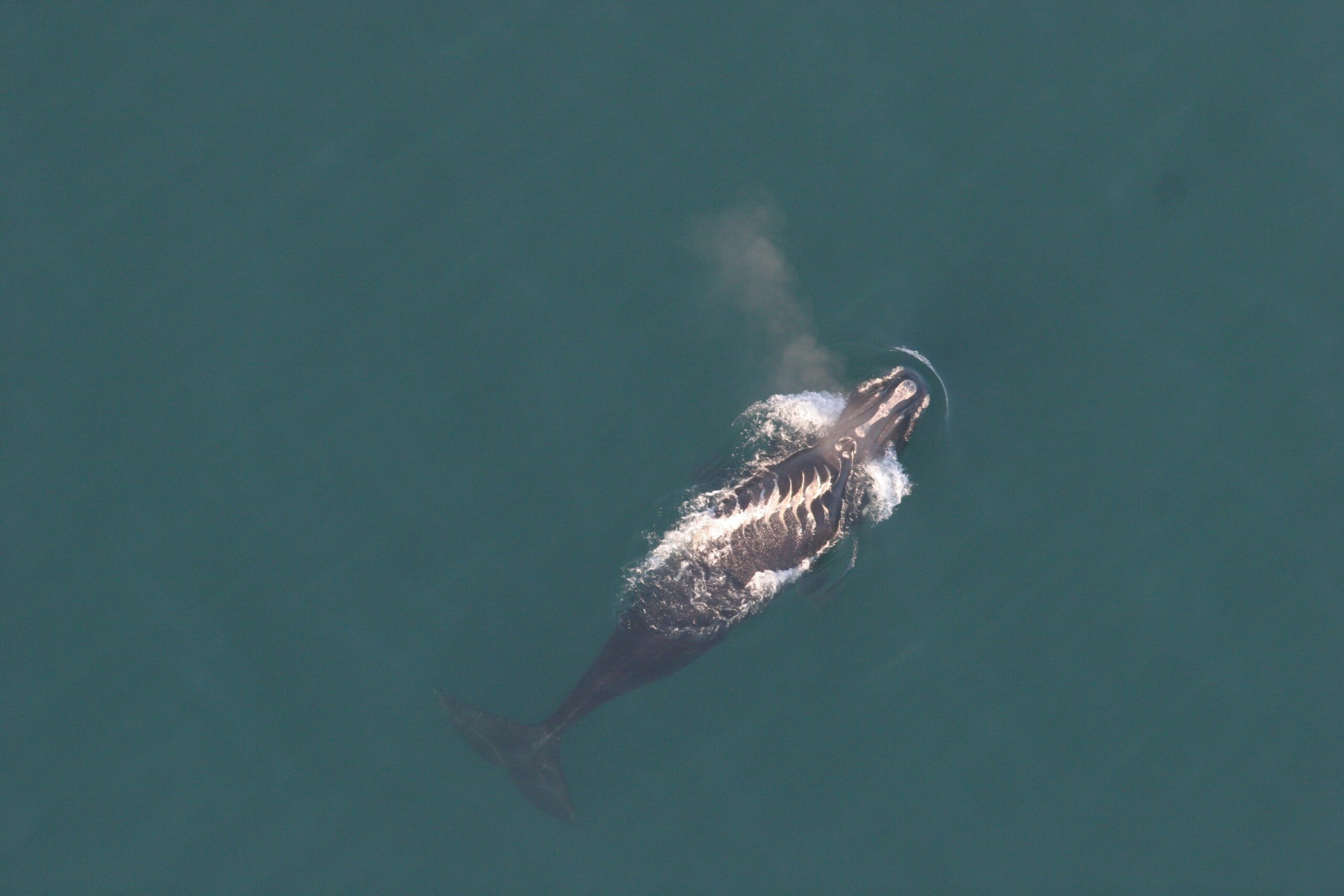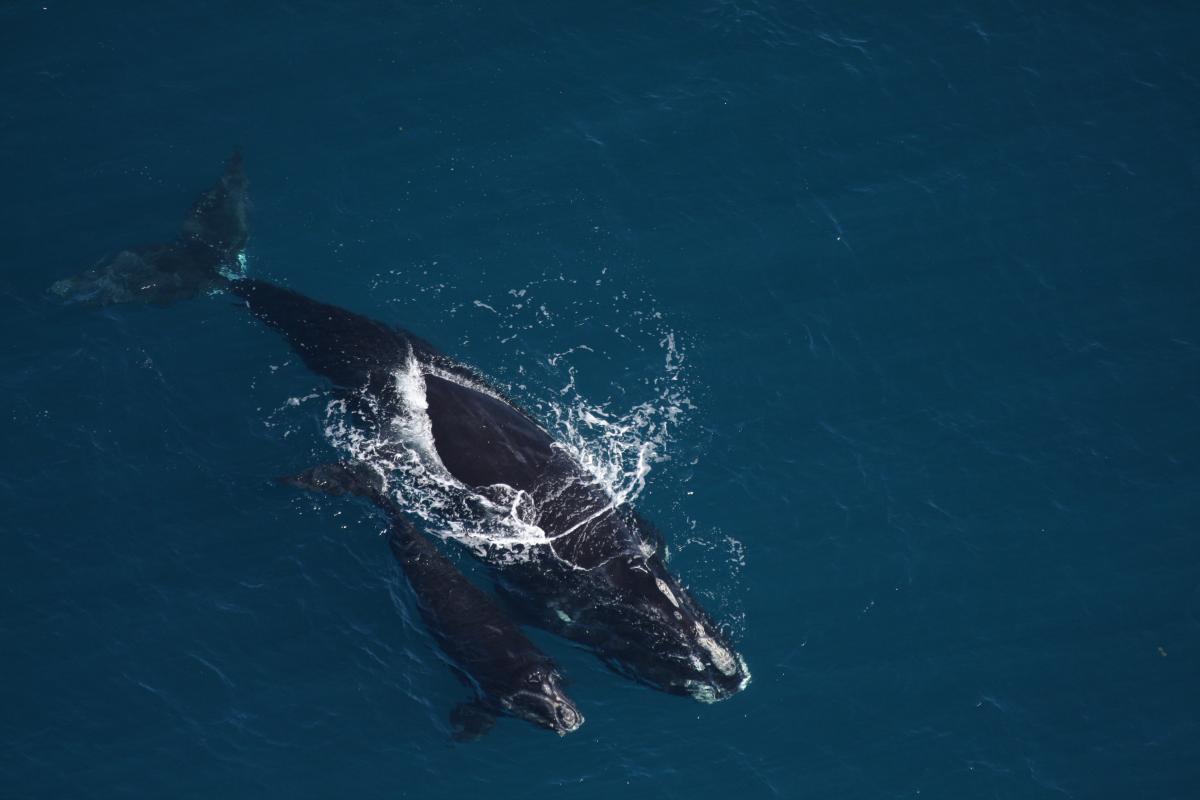March 31, 2020
Right whales should have right of way: Ships ignoring voluntary slow down zone
Estimated reading time: 0 minutes
BY: Oceana
North Atlantic right whales are one of the most endangered whales on our planet. They were hunted to the brink of extinction until 1935, when whaling this species was banned. Today, there are only about 400 left, and they continue to face threats from ship strikes and entanglements in fishing gear.
Right whales are incredibly large. They can weigh as much as 70 tonnes and grow up to 15 metres long – longer and heavier than a city bus. Despite their large size, they are no match for big vessels like cargo or cruise ships.
Collisions with large vessels travelling at fast speeds can result in the whale’s death, usually from blunt force trauma. Even smaller vessels, or those travelling at slower speeds, can cause significant injury to the whales, including propeller cuts. Research has shown that pregnant females and mothers with calves may be more susceptible to ship strikes, as they spend more time resting at the surface. A heartbreaking incident in January 2020 saw a newborn calf suffer propeller cuts on its face that prevented the young whale from nursing. The mother-calf pair haven’t been observed in several weeks.
Slowing down a ship
Slow-moving whales can’t avoid colliding with fast-moving ships, and they share the same busy routes along the Atlantic coast of North America, migrating from Florida to the Gulf of St. Lawrence every spring and back down in the fall. One solution is to slow the ships down.
Studies have found that the speed of some vessels is a major factor in how deadly a collision with a whale can be. Slowing ship speeds to less than 10 knots in areas where North Atlantic right whales may be found can reduce the risk of lethal collisions by up to 86 per cent.
To slow down the ships, the governments in Canada and the U.S. have implemented voluntary and mandatory speed restriction zones for vessels.

Right whale #3853 swimming north offshore of South Carolina with a series of fresh propeller wounds running across its back. This photo was taken in January, 2011 by EcoHealth Alliance under NOAA Permit: #594-1759.
Voluntary or mandatory
Last week, Oceana released the results of an analysis that revealed vessels were ignoring a voluntary speed zone in an area south of Nantucket designed to protect North Atlantic right whales. Between January 22 and March 6, 2020, more than 41 per cent of the 446 vessels in the area exceeded the voluntary speed limit of 10 knots, which was established by the National Oceanographic and Atmospheric Administration (NOAA) to reduce the risk of injury and death to these whales.
Of the 183 vessels exceeding the voluntary speed limit in the zone south of Nantucket, Oceana found:
• Most (92 per cent) were large cargo and tanker ships, including one that was more than 1,100 feet (335 metres) long, going as fast as 18.4 knots.
• Nearly all (96 per cent) were flagged to foreign countries such as Panama and Liberia.
• One ship reported a speed of more than 22 knots, more than twice the voluntary speed limit.
Canadian vessels must slow down
Canada has implemented several measures to reduce the likelihood of lethal ship strikes in the Gulf of St. Lawrence.
This year, the Canadian government implemented a voluntary seasonal slow down zone in the Cabot Strait, the only passage for right whales to enter and exit the Gulf of St. Lawrence. While this is a step in the right direction, Oceana Canada called for mandatory speed restrictions for the area. After reviewing the research in the U.S. near Nantucket, it is reasonable to expect that vessels won’t comply with the voluntary measures in Canada.
The Gulf of St. Lawrence is home to an essential source of food, which is why the whales congregate there from the spring to the fall. Whales, including mothers and their newborn caves, come to this spot to rest and feed on tiny crustaceans like copepods.
With so few North Atlantic right whales remaining, every death is one too many. As we learn more about how voluntary slow downs aren’t being followed, Canada needs to step up and give right whales the right of way, making slow downs mandatory in critical areas like the Cabot Strait.
 Right whale #2040 and her fifth known calf. Image was taken in February 2014 by FWC under NOAA Permit: #15488.
Right whale #2040 and her fifth known calf. Image was taken in February 2014 by FWC under NOAA Permit: #15488.
Help save the whales
Oceana is continuing to advocate for right whales; all this work is backed up by our supporters. Almost 12,000 Canadians have joined us in calling on the government to protect North Atlantic right whales. If you haven’t already done so, please add your voice and sign the petition. Together we can fight for the protection of whales and ensure this animal does not go extinct in our lifetime.

